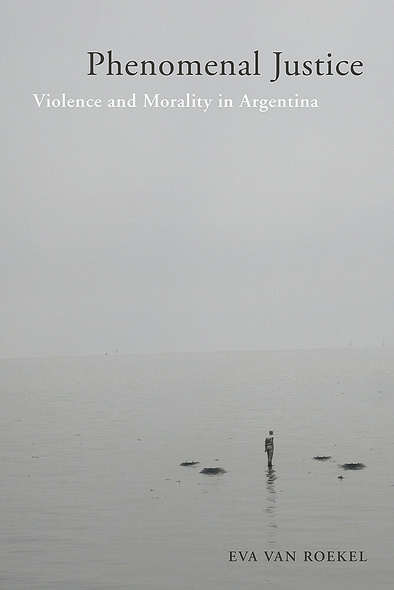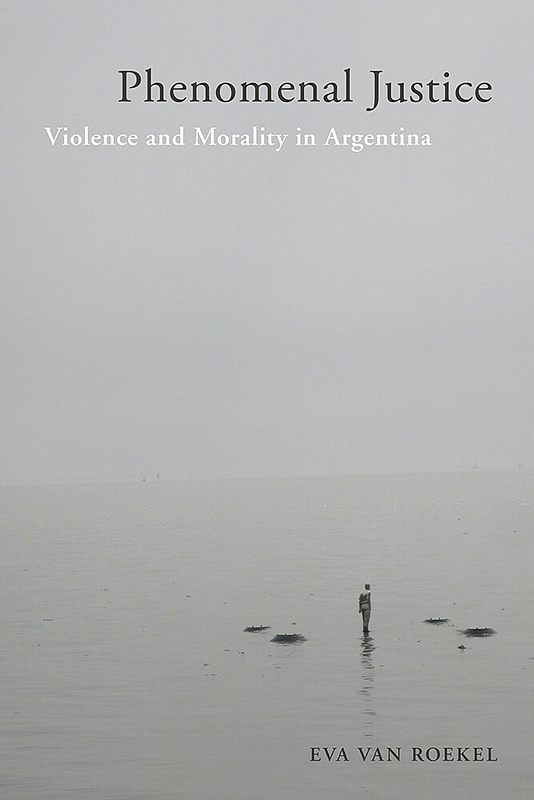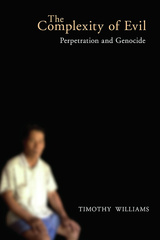
208 pages, 6 x 9
2 maps, 9 b&w images
Paperback
Release Date:17 Jan 2020
ISBN:9781978800267
Hardcover
Release Date:17 Jan 2020
ISBN:9781978800274
Phenomenal Justice
Violence and Morality in Argentina
Rutgers University Press
2020 Choice Outstanding Academic Title
Short-listed for the Juan E. Méndez Book Award for Human Rights in Latin America from Duke University Libraries
How do victims and perpetrators of political violence caught up in a complicated legal battle experience justice on their own terms? Phenomenal Justice is a compelling ethnography about the reopened trials for crimes against humanity committed during the brutal military dictatorship that ruled Argentina between 1976 and 1983. Grounded in phenomenological anthropology and the anthropology of emotion, this book establishes a new theoretical basis that is faithful to the uncertainties of justice and truth in the aftermath of human rights violations. The ethnographic observations and the first-person stories about torture, survival, disappearance, and death reveal the enduring trauma, heartfelt guilt, happiness, battered pride, and scratchy shame that demonstrate the unreserved complexities of truth and justice in post-conflict societies. Phenomenal Justice will be an indispensable contribution to a better understanding of the military dictatorship in Argentina and its aftermath.
Short-listed for the Juan E. Méndez Book Award for Human Rights in Latin America from Duke University Libraries
How do victims and perpetrators of political violence caught up in a complicated legal battle experience justice on their own terms? Phenomenal Justice is a compelling ethnography about the reopened trials for crimes against humanity committed during the brutal military dictatorship that ruled Argentina between 1976 and 1983. Grounded in phenomenological anthropology and the anthropology of emotion, this book establishes a new theoretical basis that is faithful to the uncertainties of justice and truth in the aftermath of human rights violations. The ethnographic observations and the first-person stories about torture, survival, disappearance, and death reveal the enduring trauma, heartfelt guilt, happiness, battered pride, and scratchy shame that demonstrate the unreserved complexities of truth and justice in post-conflict societies. Phenomenal Justice will be an indispensable contribution to a better understanding of the military dictatorship in Argentina and its aftermath.
Insightful and engaging, Phenomenal Justice makes an important contribution to the anthropology of emotion and to understanding the ways that feelings and structural factors shape the lived experience of justice. This is an impressive piece of work.
Eva van Roekel’s riveting account of the prolonged search for truth and reconciliation in the wake of Argentina’s Military Dictatorship sheds new light on the vexed relationships between political, legal, moral, ritual, and emotional processes of recovering from trauma or arriving at a point where justice is felt to have been done.
New Books Network' interview with Eva van Roekel
https://player.fm/series/new-books-network-2472510/eva-van-roekel-phenomenal-justice-violence-and-morality-in-argentina-rutgers-up-2020
Transcending a simple right-versus-wrong dichotomy, the author writes an engaging narrative that invites the reader to embrace the complex subtleties of violence and morality, and of truth and reconciliation, in post-conflict Argentina, and by extension in the world at large. Phenomenal Justice is invaluable for students of anthropology and sociology who are approaching their first extensive fieldwork experience. Highly recommended.'
Van Roekel’s final defence of phenomenal anthropology as a tool for the analysis violence and its aftermath is a convincing one, and the book will have broad appeal to scholars interested in Argentine cultural and political history and transitional justice, memory and philosophy beyond Argentina as we seek to understand more about violence and (ongoing) injustice.
Phenomenal Justice examines what its author calls ‘the anthropology of emotion’ and focuses on the reactions provoked by the 2005 ruling from Argentina’s Supreme Court that declared unconstitutional the amnesty laws blocking prosecution for crimes committed under the military dictatorship.
EVA VAN ROEKEL is an assistant professor in social and cultural anthropology at Vrije Universiteit Amsterdam in the Netherlands.
List of Abbreviations
Prologue: The Verdict
1. Phenomenal Justice
2. Things That Matter
3. Time
4. Trauma
5. Disgrace
6. Laughter and Play
7. Where Justice Belongs
Acknowledgments
Glossary
Notes
References
Index
Prologue: The Verdict
1. Phenomenal Justice
2. Things That Matter
3. Time
4. Trauma
5. Disgrace
6. Laughter and Play
7. Where Justice Belongs
Acknowledgments
Glossary
Notes
References
Index






